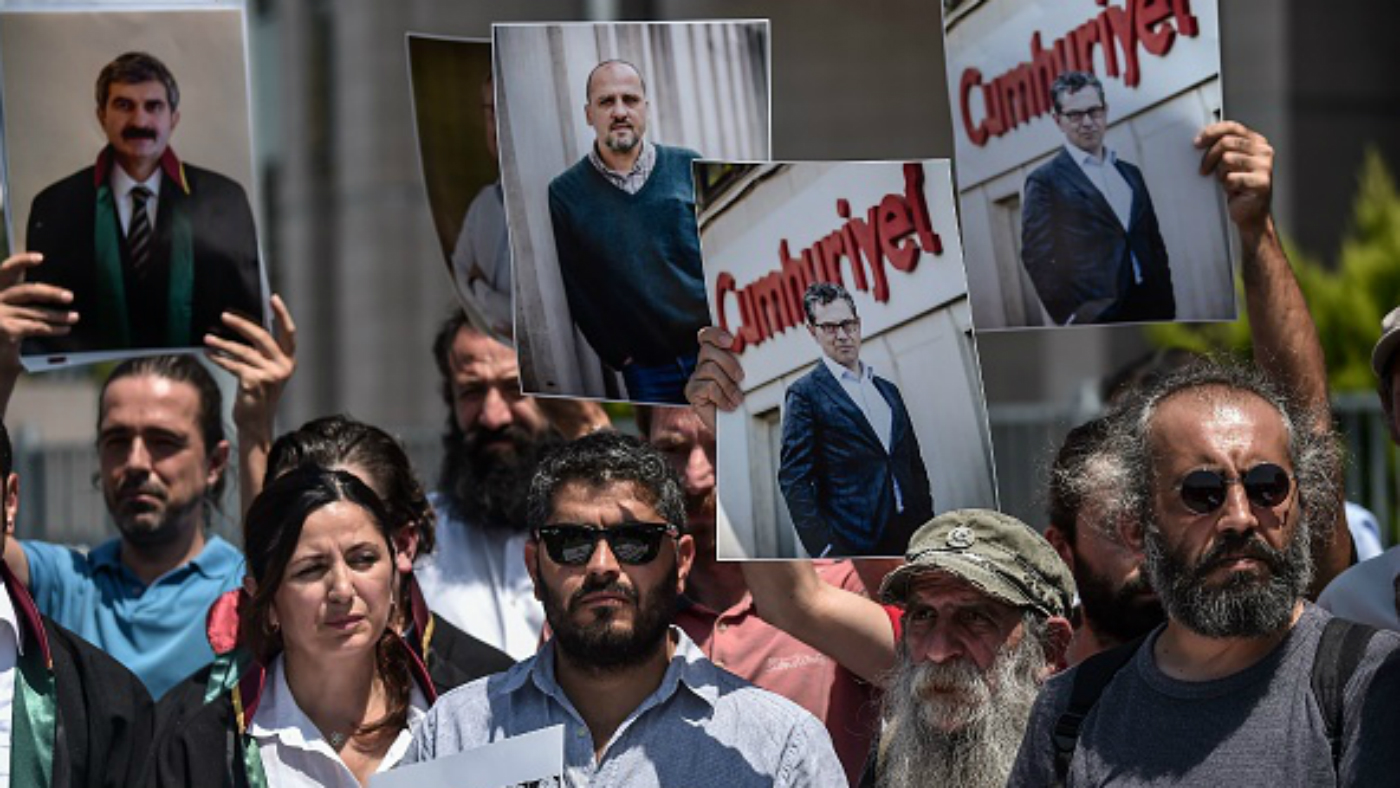Turkish journalists stand trial on terrorism charges
Human rights group claim case is attempt to crack down on press freedom

A free daily email with the biggest news stories of the day – and the best features from TheWeek.com
You are now subscribed
Your newsletter sign-up was successful
More than a dozen journalists from Turkey's leading secular newspaper are on trial in Istanbul charged with aiding a terrorist organisation.
They are accused of having links to Fethullah Gulen, the cleric who has been accused of orchestrating last year's failed coup, as well as the Kurdistan workers party the PKK.
However, human rights groups argue the trial is politically motivated and part of a wider assault on press freedom by President Recep Tayyip Erdogan's AKP.
The Week
Escape your echo chamber. Get the facts behind the news, plus analysis from multiple perspectives.

Sign up for The Week's Free Newsletters
From our morning news briefing to a weekly Good News Newsletter, get the best of The Week delivered directly to your inbox.
From our morning news briefing to a weekly Good News Newsletter, get the best of The Week delivered directly to your inbox.
Columnist Kadri Gursel told the court yesterday: "I am not here because I knowingly and willingly helped a terrorist organisation, but because I am an independent, questioning and critical journalist."
He and his 16 colleagues - reporters, cartoonists and editors from the Cumhuriyet newspaper - face between seven and 43 years in prison if found guilty.
The trial has become "a symbol of the collapse of press freedom" in Turkey, the Daily Telegraph reports.
Johahn Bihr, of Reporters Without Borders, told CNN: "Cumhuriyet newspaper is one of the few remaining independent media outlets. That's why they are on trial."
A free daily email with the biggest news stories of the day – and the best features from TheWeek.com
Turkey's jails currently hold more than 150 journalists, most on terror-related charges.
However, President Erdogan told the BBC there were only two journalists behind bars. "The rest are either terrorists, or they were carrying guns, or they robbed ATM machines," he said.
-
 The ‘ravenous’ demand for Cornish minerals
The ‘ravenous’ demand for Cornish mineralsUnder the Radar Growing need for critical minerals to power tech has intensified ‘appetite’ for lithium, which could be a ‘huge boon’ for local economy
-
 Why are election experts taking Trump’s midterm threats seriously?
Why are election experts taking Trump’s midterm threats seriously?IN THE SPOTLIGHT As the president muses about polling place deployments and a centralized electoral system aimed at one-party control, lawmakers are taking this administration at its word
-
 ‘Restaurateurs have become millionaires’
‘Restaurateurs have become millionaires’Instant Opinion Opinion, comment and editorials of the day
-
 Epstein files topple law CEO, roil UK government
Epstein files topple law CEO, roil UK governmentSpeed Read Peter Mandelson, Britain’s former ambassador to the US, is caught up in the scandal
-
 Iran and US prepare to meet after skirmishes
Iran and US prepare to meet after skirmishesSpeed Read The incident comes amid heightened tensions in the Middle East
-
 Israel retrieves final hostage’s body from Gaza
Israel retrieves final hostage’s body from GazaSpeed Read The 24-year-old police officer was killed during the initial Hamas attack
-
 China’s Xi targets top general in growing purge
China’s Xi targets top general in growing purgeSpeed Read Zhang Youxia is being investigated over ‘grave violations’ of the law
-
 Panama and Canada are negotiating over a crucial copper mine
Panama and Canada are negotiating over a crucial copper mineIn the Spotlight Panama is set to make a final decision on the mine this summer
-
 Why Greenland’s natural resources are nearly impossible to mine
Why Greenland’s natural resources are nearly impossible to mineThe Explainer The country’s natural landscape makes the task extremely difficult
-
 Iran cuts internet as protests escalate
Iran cuts internet as protests escalateSpeed Reada Government buildings across the country have been set on fire
-
 US nabs ‘shadow’ tanker claimed by Russia
US nabs ‘shadow’ tanker claimed by RussiaSpeed Read The ship was one of two vessels seized by the US military